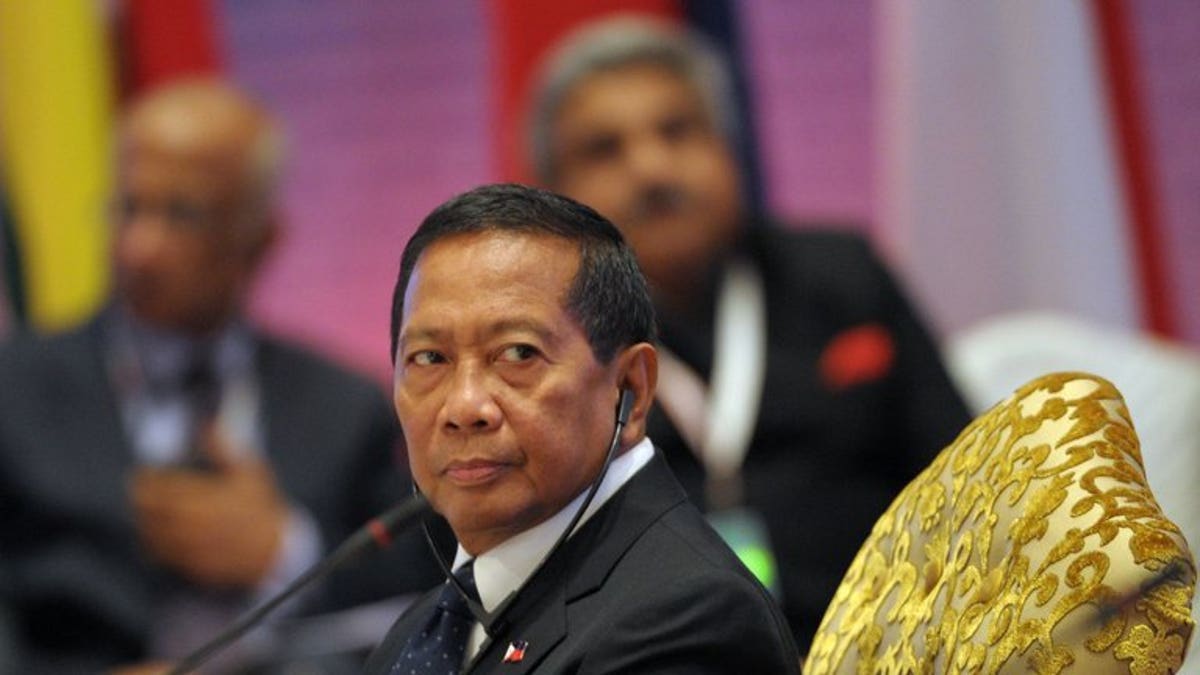
Philippine Vice-President Jejomar Binay during an ASEAN-India Commemorative Summit in New Delhi on December 20, 2012. He called off a proposed visit to China to save a Philippine woman from being executed for drug trafficking, saying Beijing had declined to receive him. (AFP/File)
MANILA (AFP) – Vice-President Jejomar Binay said he had been forced to call off a proposed visit to China to save a Philippine woman from being executed for drug trafficking, after Beijing had declined to receive him.
Binay said he could no longer deliver President Benigno Aquino's letter to Chinese President Xi Jinping asking him to spare the woman after China sent word that it would not be a "convenient time" for him to visit.
"This Saturday, I was informed that the Ministry of Foreign Affairs of China has sent word that now would not be a convenient time for me to visit China," Binay said in a statement.
"Given this development, I am left with no option but to cancel my trip to China. I ask for prayers for our compatriot and her family."
He added that he was "sad" about China's decision.
"I wanted to go to China to personally appeal for compassion," he said.
The woman was one of two Filipinos arrested for smuggling more than 12 kilogrammes (26 pounds) of heroin into China in 2011.
Her execution is due to take place Tuesday, Binay's office has said, while the Filipino man who was sentenced with her had his execution set back by two years.
The Philippine government insisted it was not giving up hope of winning a reprieve for the condemned woman, one of more than 200 Filipinos detained for drug-related cases across China according to the Filipino foreign ministry.
The case comes amid already rocky bilateral relations between the two countries, soured by overlapping territorial claims in the South China Sea.
"At this point I will not agree with the assumption of the question that there is no hope," Aquino's spokeswoman Abigail Valte said in an interview aired on government radio.
She said that despite the vice president's failure to visit China to see Xi, Aquino's appeal "has been conveyed to the appropriate panel" and his government was waiting for a response.
Aquino had previously sent Binay to China in February 2011 to seek a reprieve for three Filipinos also convicted of drug trafficking.
However the three were still executed after Binay's visit.
The executions triggered widespread condemnation in the Philippines, which abolished the death penalty in 2006.
About a tenth of the Philippines' 100 million population work abroad, many of them under harsh conditions where drug traffickers sometimes exploit them into becoming drug mules.
Valte appealed to fellow Filipinos "to follow the law whenever they go abroad and not to allow themselves to be victimised by syndicates or any other persons".
A spokesman for the Chinese embassy in Manila was not immediately available for comment on Sunday.
